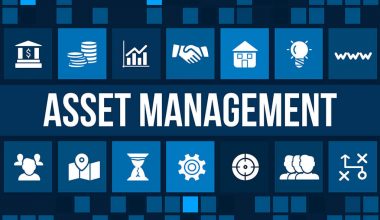When it comes to starting a profitable career, then, technical project management is highly recommended. The profession has been around for a long time, but sadly, only a handful of individuals know about it. So, if you’re considering this as a career path, this will serve as a guide. Simply put, we’ll be considering the salary, interview questions, job description, and skills of a technical project manager in this post. We will also go over how the role of a project manager differs from a technical project manager.
Technical Project Manager Overview
The technical project manager (TPM) role encompasses just the technical and leadership aspects of project management. They are also instrumental in the planning, directing, scheduling, and management of all project-related activities. Consequently, individuals in this role must possess a high level of technical expertise. And the capabilities required for all project managers. These include excellent organization, leadership, and communication skills. According to data from the U.S department of labor, companies across the country will need more than 50,000 jobs for technical project managers between 2015 and 2023.
Technical Project Manager Salary
For those looking to get started as a technical project manager, the salary for entry-level roles can be up to $65,000.
Also, if you have 1-4 years of experience, you can earn an average compensation of $78,000.
Technical project manager salary for mid-career is $92,000, that’s for people with 5-9 years of experience.
Are you an experienced Technical Project Manager? And you have between 10-19 years of experience, you can earn up to $105,000. For those with more than 20 years of experience, that increases to $122,000.
Technical Project Manager Job Description
A technical project manager’s job description is technical and administrative in nature. In addition, one needs organization, leadership, and communication skills. When one possesses those essential qualities it helps to function effectively.
Technical project managers are tasked with managing projects with top-down oversight from inception to completion. More so, they must ensure that all projects adhere to the required standards of budget, timeline, and scope. They must also develop project plans that meet client needs with company goals, and coordinate team managers and technical personnel throughout all stages of the project.
Top candidates should have excellent problem-solving skills. Also, with at least three years of management experience in development work and customer interaction. They should have the ability to anticipate the needs of future projects by communicating with clients and staying abreast of relevant shifts in the industry.
More so, the technical project manager job description contains information regarding the qualities and skills that qualified candidates will possess. This includes proficiency with a minimum of one web development language, strong teaming abilities, and extensive leadership experience.
Technical Project Manager Skills
To perform optimally as a project manager, such an individual must possess certain technical manager skills that will help facilitate his/her duties. let’s consider some of the required skills.
#1. Time management :
As a project manager, you have the responsibility to oversee several projects. Also, it’s your role to ensure that your teamwork saves time. You need to know how to prioritize effectively also, how to make the best use of your time and everyone else’s. In addition, Strong time management skills will allow you to meet up with multiple deadlines without letting anything slip through you.
#2. Team development:
To achieve positive results, you need to constantly encourage your team members to develop themselves. This is one skill every technical project manager must possess to be effective as a technical manager. Furthermore, good project managers understand how to leverage each individual’s strengths to promote team success. They also know how to allocate resources so that work is distributed fairly among team members.
#3. Problem Solving:
A skilled project manager is not afraid to think outside the box. Also, as a skilled project manager, you must share ideas and help energize the team in developing a new approach to an old problem. When issues or roadblocks arise, they can stay calm and help the team work toward a solution. The ultimate goal of technical project management skills is to solve problems.
#4. Critical thinking:
Good technical project management skills also consist of being able to foresee potential obstacles before they arise. Critical thinking skills can help you learn to anticipate team needs and uncover ways to make processes more efficient so that everyone can focus on the task at hand.
#5. Delegate duties:
You can’t do it all yourself. Delegating not only provides team members with opportunities to hone their skills but also shows that you trust them to get the job done—no one likes being micromanaged! But as a side note, remember that you are accountable for the project, and regularly checking in with your team members is a smart way to ensure the completion of all delegated tasks.
What is the Difference Between a Project Manager and a Technical Project Manager?
A technical project manager is someone who possesses extensive knowledge and experience in a particular discipline, such as engineering or information technology. Compared to other members of the team, a project manager often possesses fewer technical skills but is highly knowledgeable in project management. The majority of the time, technical project managers have excellent analytical and problem-solving skills.
Is Technical Project Manager a Good Career?
Technical project managers typically have a high earning potential since they have knowledge in both the technical and management parts of their respective fields. The annual base income for people in this profession is averaged out to be $94,509 on a nationwide scale. This is a huge increase from the typical annual salary of a project manager, which is $73,801 in the United States.
What Skills Does a Technical Project Manager Need?
A technical project manager needs to be strong in conventional project management abilities such as time management, leadership, communication, decision-making, and planning in order to be successful in their role. However, in order to fulfill the requirements of their role as technical leaders, they must be familiar with a variety of coding languages, app architectures, and quality assurance procedures.
What is the Career Path for Technical Project Managers?
The path toward a career in technical project management. Business analysts and associate or assistant project managers are common entry-level positions for anyone seeking a career in project management. After gaining sufficient work experience, project managers can advance their careers by assuming positions such as Senior, Chief, Vice President, or Director of Project Management.
Technical Project Manager Interview Questions
There are interview questions that one must answer before one can be accepted as a technical project manager of any given company. Let’s consider some of those questions here:
#1. Would you be more comfortable managing an engineering team, sales/marketing department, or both?
This question is geared towards knowing which area their candidate has an interest in. From that, they will know where to place his/her for effectiveness.
#2. Let’s say as a technical project manager you get a budget cut. How would you tackle such a situation?
The interviewer is trying to know the scale of priority for their candidate. An employee who has a cut in the budget will always channel the bulk of the budget to what he or she considers more important.
#3. What’s the most exciting project you’ve ever worked on?
This technical project manager interview question has the same essence as the very first one. More so, the interviewer can use this question to see the type of work the candidate enjoys. However, that will also help to facilitate the work. The ability to “prioritize tasks” is often included in the required skillsets of TPM job descriptions.
#4. Tell me about a product that you love.
The crucial part of this question or the answer to it is not the product itself. But, the candidate’s explanation of why they love that product. This will tell the interviewer thus, a lot about the candidates’ understanding of what’s behind good product development. Also, about their passion for the field.
#5. What is it about our product(s) that excites you?
Keep in mind that the interviewer might choose to ask this question right at the beginning. The focus is on knowing the level of connection you have with their company. Hence, you should talk well about their products. This is a major technical project manager interview question.
NOTE: When it comes to technical project manager interview questions, your conduct is vital.
Qualifications for Technical Project Manager
- Master’s degree in Project Management or related technical field required
- Professional Project Management Certification from accredited intuition preferred
- Demonstrated understanding of Project Management processes, strategies, and methods
- Experience mentoring, coaching, and developing rising talent in the technology department
- Excellent time management and organizational skills and experience establishing guidelines in these areas for others
- Strong sense of personal accountability regarding decision-making and supervising department teams
- Experience working in a high-level collaborative environment and promoting a teamwork mentality
- Managerial experience applying analytical thinking and problem-solving skills
- Ability to predict challenges and seek to proactively head off obstacles
How Does the Role of a Project Manager Differ From a Technical Project Manager
A technical project manager is a hybrid role encompassing both tech guru and inspiring leader, a technical project manager is instrumental in the planning, scheduling, and management of IT and IT-related projects. Individuals in this role must possess both a high level of technical expertise and the capabilities required for all project managers, including excellent organization, leadership, and communication skills. Some of those roles include
- Brainstorming
- Planning the project
- Scheduling and designation of project tasks to team members
- Execution of each phase of the project
- Managing the project’s budget
- Communicating with all stakeholders
- Collaborating with department heads to achieve a common goal
However, technical project managers are specifically tasked with managing projects that contain a high degree of technicality. They must be trained in and understand relevant technologies and architectures to properly support these projects. For example, technical project managers should have expertise in hardware and software installation, upgrades, site maintenance, and, ideally, program and app development. on the other side of the coin.
Project managers are responsible for planning, organizing, and directing the completion of specific projects for an organization while ensuring these projects are on time, on budget, and within scope.
By overseeing complex projects from inception to completion, then project managers have the potential to shape, helping to reduce costs, maximize company efficiencies, and increase revenue.
Also, the exact duties of a project manager will depend on their industry, organization, and the types of projects that a PM is tasked with overseeing.
What are the 10 Types of technical project managers
The 10 Types of project managers include;
- Marketing project manager.
- Engineering project manager.
- Architectural project manager.
- IT project manager.
- Senior project manager
- Electrical project manager.
- Systems project manager.
- Construction project management.
- AX project manager
- PMO manager.
What Experience Do You Need to Be a Project Manager
- Three Years
The ability to communicate effectively, formal training, a Project Management Professional (PMP) certification, and at least three years of experience working in a capacity that is comparable are all typical prerequisites. Certification can be earned through participation in a relevant professional association, an academic institution (such as a university or college), or a specialized online learning program.
CONCLUSION
If you’re serious about pursuing a career of this sort. You can contact us at Business Yield for more tips, on how to be an effective technical project manager. In addition, you’ll learn all the skills that earn the highest salaries in the project management field, like how to translate big-picture goals into budgets and timelines and carry projects to completion.
Technical Project Manager FAQs
How do I become a good technical program manager?
You can achieve this through becoming very vast with technical knowledge cum managerial skills.
How many years does it take to become a project manager?
It all depends on your needs and take up the different education stages. By following the steps we can estimate that it takes about 5 to 9 years long to become a project manager.
Is a program manager higher than a project manager?
The role of the project manager is more tactical than the program manager. They focus mainly on execution and managing the functional elements of the project
{
“@context”: “https://schema.org”,
“@type”: “FAQPage”,
“mainEntity”: [
{
“@type”: “Question”,
“name”: “How do I become a good technical program manager?
“,
“acceptedAnswer”: {
“@type”: “Answer”,
“text”: “
You can achieve this through becoming very vast with technical knowledge cum managerial skills.
“
}
}
, {
“@type”: “Question”,
“name”: “
How many years does it take to become a project manager?
“,
“acceptedAnswer”: {
“@type”: “Answer”,
“text”: “
It all depends on your needs and take up the different education stages. By following the steps we can estimate that it takes about 5 to 9 years long to become a project manager.
“
}
}
, {
“@type”: “Question”,
“name”: “Is a program manager higher than a project manager?
“,
“acceptedAnswer”: {
“@type”: “Answer”,
“text”: “
The role of the project manager is more tactical than the program manager. They focus mainly on execution and managing the functional elements of the project
“
}
}
]
}






